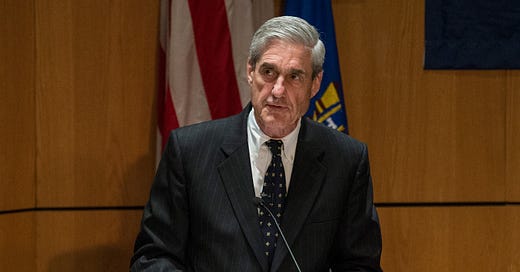One Reason Mueller Was Right to Defer to Barr on Obstruction
The Mueller investigation is now officially over, though the fights over it will continue for the foreseeable future. It remains to see how much of the report will be made public, but one thing that we know is not included is a recommendation from the special counsel that the president be indicted.
In fact, regarding obstruction of justice question, the letter from Attorney General William Barr to Congress indicated:
[T]he Special Counsel considered whether to evaluate the conduct under Department standards governing prosecution and declination decisions but ultimately determined not to make a traditional prosecutorial judgment. The Special Counsel therefore did not draw a conclusion - one way or the other – as to whether the examined conduct constituted obstruction. Instead, for each of the relevant actions investigated, the report sets out evidence on both sides of the question and leaves unresolved what the Special Counsel views as “difficult issues” of law and fact concerning whether the President's actions and intent could be viewed as obstruction.
Instead, Mueller’s report tasked “the Attorney General to determine whether the conduct described in the report constitutes a crime.”
That decision has generated considerable pushback from those who suggest Trump named Barr the attorney general because Barr had written a memo criticizing the obstruction of justice portion of Mueller’s probe.
But it’s arguable that Mueller made the right decision.
There was never any chance that the Mueller report would end the controversy about Trump’s relationship with law enforcement, truth, and the rule of law. There are ongoing investigations into Trump and his family, notably in the Southern District of New York, that will inform those debates. And Congress will have its turn: the House Judiciary Committee announced its investigation earlier this month.
However nasty and partisan the fights over releasing the Mueller report will become, they would have been infinitely worse if either the Department of Justice or Congress had been forced to play by the other’s rules.
For an example of how poorly that could have gone, look no further than the hierarchy Loretta Lynch imposed in her final year as President Obama’s attorney general. Having been criticized for meeting secretly with Bill Clinton while the DoJ was investigating his wife Hillary, she declined to recuse herself from that investigation. There was a competent deputy attorney general, Sally Yates, who could have taken over if Lynch had recused herself, but instead, the attorney general farmed out the prosecutorial decision to the investigators themselves. She pledged to accept whatever prosecution recommendation the FBI gave her, upending the division of investigations by civil servants from prosecutions overseen by political appointees.
Then-FBI Director James Comey has shouldered most of the blame for what ensued—he announced in July 2016 he wouldn’t indict Hillary Clinton but then told Congress days before the 2016 election that he was looking into new information based on the FBI’s Anthony Weiner investigation—but his lapse was merely what he called “unusual transparency,” reporting the findings of the investigation and his prosecution recommendation publicly rather than privately.
Comey was clear about the regular order of things: “In our system, the prosecutors make the decisions about whether charges are appropriate based on evidence the FBI has helped collect. Although we don’t normally make public our recommendations to the prosecutors, we frequently make recommendations and engage in productive conversations with prosecutors about what resolution may be appropriate, given the evidence.”
The ensuing firestorm of criticism should have been directed more at Lynch, who sullied both institutions, rather than Comey, who had no good options and may have chosen the least-bad one.
Regardless of how the dispute over indicting a sitting president might have been settled, by pushing the ultimate prosecutorial decisions to political appointees, Mueller made himself the anti-Loretta Lynch.





